Exploring the Best of Egypt
Some say there’s never been a better time to visit Egypt. History would tell us there is always a good time to visit Egypt! We’ve been drawn there for thousands of years. But the problem today? Where to go! There are so many fascinating things to learn, see, do, explore. If you have a limited amount of time, and want to see the best of a country, there are suitable Egypt multi destination holidays to help you get to all the important places. Want to explore the best of Egypt? Here’s what NOT to miss…
Alexandria
This ancient city, founded by Alexander the Great a few thousand years ago, is located on the Mediterranean. It’s full of history and modernity. You can see catacombs, underwater ruins, mosques and cathedrals, and more. But you might just love to explore the NEW library of Alexandria, both inside and out.
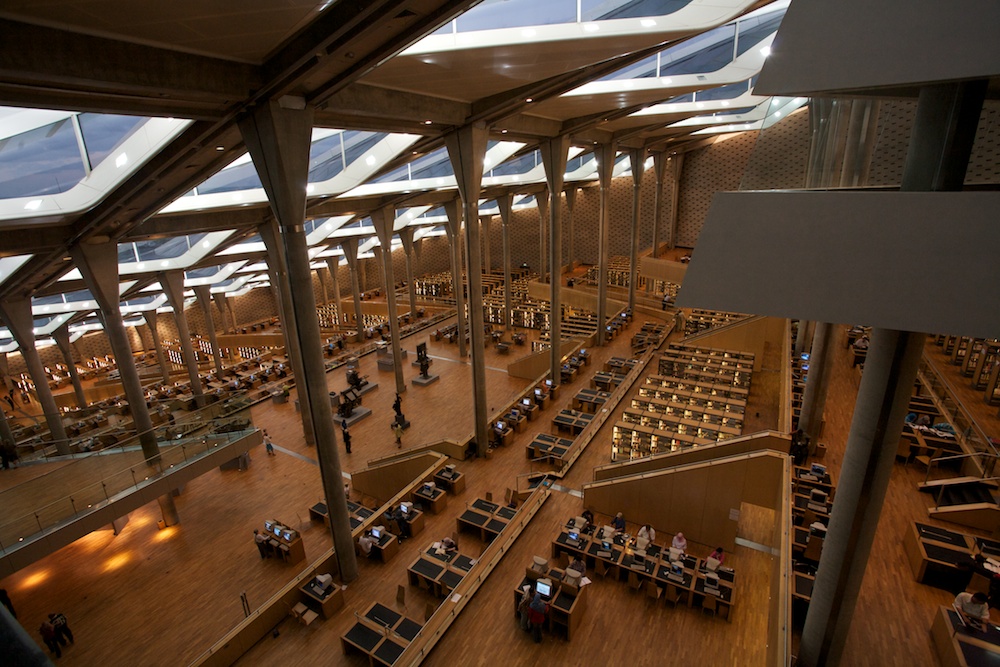
The Bibliotheca Alexandrina's interior, from near the top. Wikimedia Commons: CarstenW

The outside wall of Bibliotheca Alexandrina, surrounded by a pool. Letters are from around 120 different languages. Wikimedia Commons: Kostas Kokkinos
Cairo
Hustling, bustling, Cairo is also a place of living history. It breathes learning. Explore the Egyptian Museum, visit the Pharaonic Village to travel through time, visit a papyrus institute to see how paper was made, walk along the Nile, shop in the markets, and eat meals that have been made for millennia.
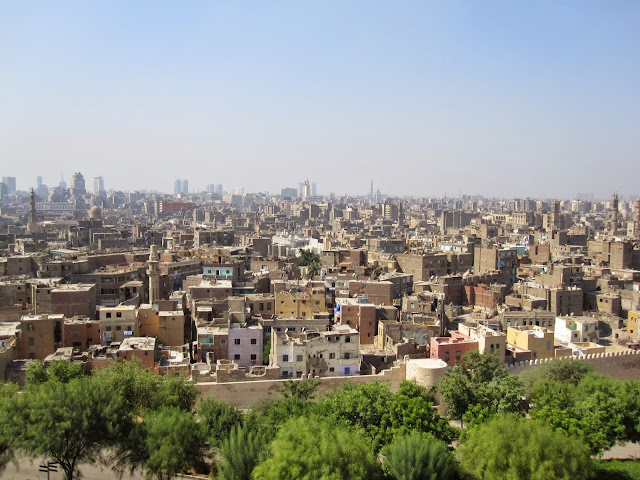
Cairo skyline. Photo: Stacey Ebert
Giza
Of course, no trip to Egypt would be complete without visiting the Great Pyramids. You can take a virtual tour here! Before you go, we suggest learning about the Great Pyramid of Khufu, which is the only link back to the early Seven Wonders of the World. On site, visit the Boat Museum that houses the Great Barque of Khufu (it was originally located within the Great Pyramid and deconstructed, moved, and reconstructed).
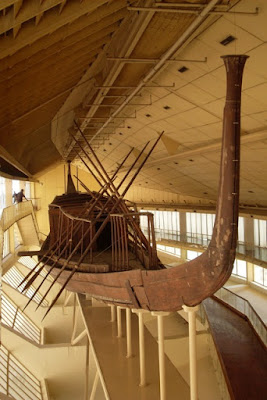
Photo: Benedict Davies
Abu Simbel
Abu Simbel is the location of two temples – the larger Temple of Ramesses II and a smaller temple, the Temple of Nefertari – and they are carved from ROCK! Built by Ramesses II for himself and his queen, these temples feature enormous outdoor statues (of themselves) outside, and a special feature within. On two days a year (February 22 and October 22), the sun can shine all the way to the back of the temple, thus illuminating a statue of Ramesses II. Here’s the craziness – in 1968, the Nile was dammed up to create Lake Nasser, via the Aswan Dam. The temples were MOVED to higher ground!

Temple complex at Abu Simbel. Wikimedia Commons: Holger Weinandt
Luxor
The gateway to the Valley of the Kings, the word Luxor means Palaces! Not surprising, then, that Luxor offers temples, ancient tombs, beautiful scenery, and a busy town. There’s lots to see. The area is divided up by the Nile, of course. On the East bank, you have the town of Luxor, the Temple of Karnak, the Luxor Temple, the Museum, and the main locations for transportation, food, hotels, etc.

The New Corniche near the Museum. Wikimedia Commons: Marc Ryckaert

Statues at Karnak Temple. Wikimedia Commons: Amaunet
On the West Bank is the location of the old capital of Egypt, Thebes. Here, you’ll find ancient history in the Valley of the Kings, the Valley of the Queens, and more ruins.

Valley of the Kings. Wikimedia Commons: Hajor
Hit the beach (Dahab, Sharm el Sheikh)
Of course, Egypt is known for its beaches and diving.
Dahab is perhaps the most famous, especially for the Blue Hole, a sinkhole that is 900m deep.
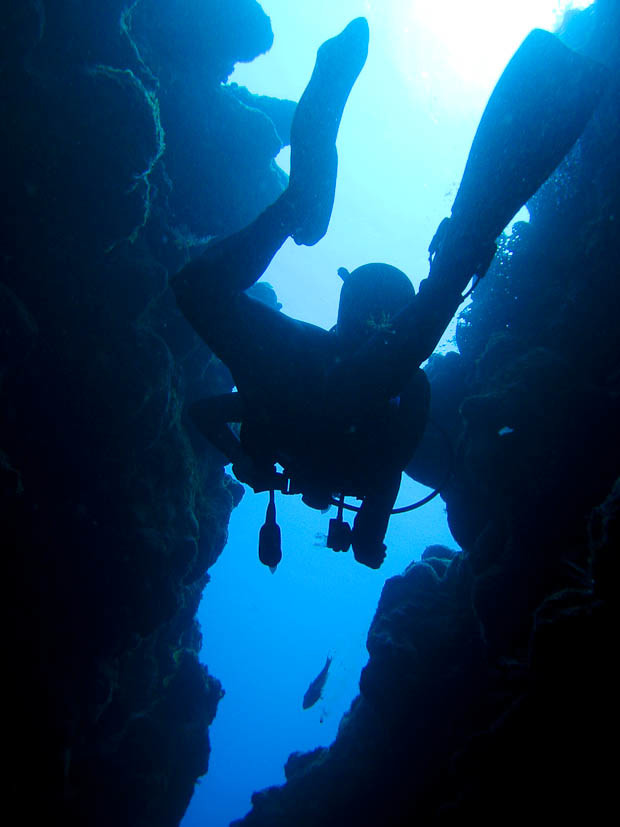
Blue Hole canyon. Photo Escape Artistes

Lighthouse, Dahab. Photo Escape Artistes
Sharm el Sheikh is a popular resort town on the beach. You can hit the waves, scuba dive, visit nearby Mount Sinai, and explore the ancient St Catherine’s monastery.
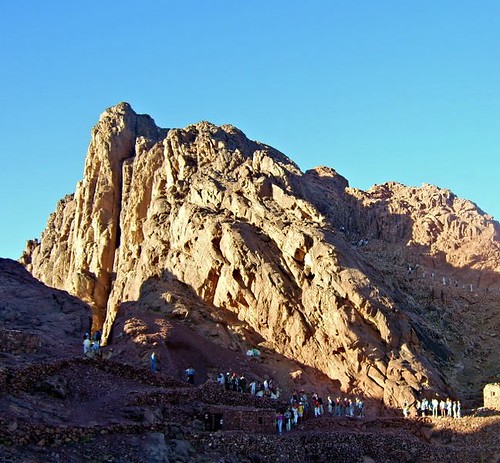
Flickr cc: SeeTheHolyLand
Wherever you go, try to cruise the Nile, shop in the local markets, enjoy the delicious cuisine, soak in history, and learn as much as you can about this modern, ancient culture.
Where will you go first?
-

- Log in to post comments




















